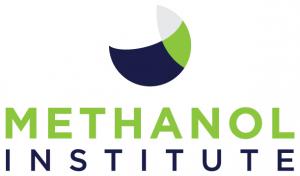Methanol Institute Statement on Worldwide Fuel Charter
MI CEO Responds to Release of the 6th Edition WWFC Which Now Accepts the Blending of Methanol in Gasoline Where Specified by Applicable Standards
“The 6th edition of the Worldwide Fuel Charter (WWFC) was released this week offering the automakers’ recommendations for a harmonized global specification for gasoline. Previous editions of the Worldwide Fuel Charter suggested that methanol should not be permitted in gasoline. In response to detailed comments submitted by the Methanol Institute and other stakeholders, the 6th Edition WWFC now finds that methanol is acceptable for blending in gasoline where “specified by applicable standards,” using the example of the European Union’s allowance of up to 3% methanol by volume in gasoline under standard EN228.
“While we welcome the global automaker’s recognition that the blending of methanol in gasoline is allowed in countries around the world, the continued perpetuation of biased misstatements contained in the WWFC about methanol are unfortunate. In a section of the WWFC on ‘Oxygenates,’ the document raises concerns about the blending of methanol in gasoline based entirely on unpublished ‘non-confidential images/data used with Toyota’s permission.’ Contrary to the limited technical data presented in the WWFC, the Methanol Institute’s comments highlighted over 40 years of successful commercial experience with methanol/gasoline fuel blends.
“Our comments addressed technical and commercial concerns regarding materials compatibility, driveability, emissions, and fuel stability. Methanol’s physical properties – high octane, high heat of vaporization, high flame speed, and reduced engine knock – enhance gasoline and enable technologies for greater engine efficiency. Blending methanol into gasoline also reduces harmful vehicle exhaust emissions.
“While one goal of the WWFC is to specify a gasoline with lower carbon intensity, the document fails to note that methanol is being produced today from a wide range of conventional and renewable feedstocks. Methanol can be a future proof, low-carbon and high-octane gasoline blendstock for the global fleet of cars.”
About the Worldwide Fuel Charter: The WWFC is published by the European Automobile Manufacturers Association (ACEA), US Alliance of Automobile Manufacturers, US Engine Manufacturers Association, and Japan Automobile Manufacturers Association to “promote harmonized fuel quality worldwide.” In April, ACEA announced that the Worldwide Fuel Charter Committee was seeking comments on the proposed 6th edition of the Worldwide Fuel Charter.
About the Methanol Institute: As the trade association for the global methanol industry, the Methanol Institute (MI) represents world’s leading methanol producers, distributors and technology companies from its offices in Singapore, Washington, Brussels and Beijing. For the past 30 years, MI has worked to ensure the safe handling of methanol across the distribution chain, promote the growth of methanol as an essential chemical commodity and energy resource, and influence global regulatory and public policy initiatives that impact the methanol industry. More information about the Methanol Institute can be found here: https://www.methanol.org/
Gregory Dolan
Methanol Institute
+1 703-248-3636
email us here
Legal Disclaimer:
EIN Presswire provides this news content "as is" without warranty of any kind. We do not accept any responsibility or liability for the accuracy, content, images, videos, licenses, completeness, legality, or reliability of the information contained in this article. If you have any complaints or copyright issues related to this article, kindly contact the author above.

